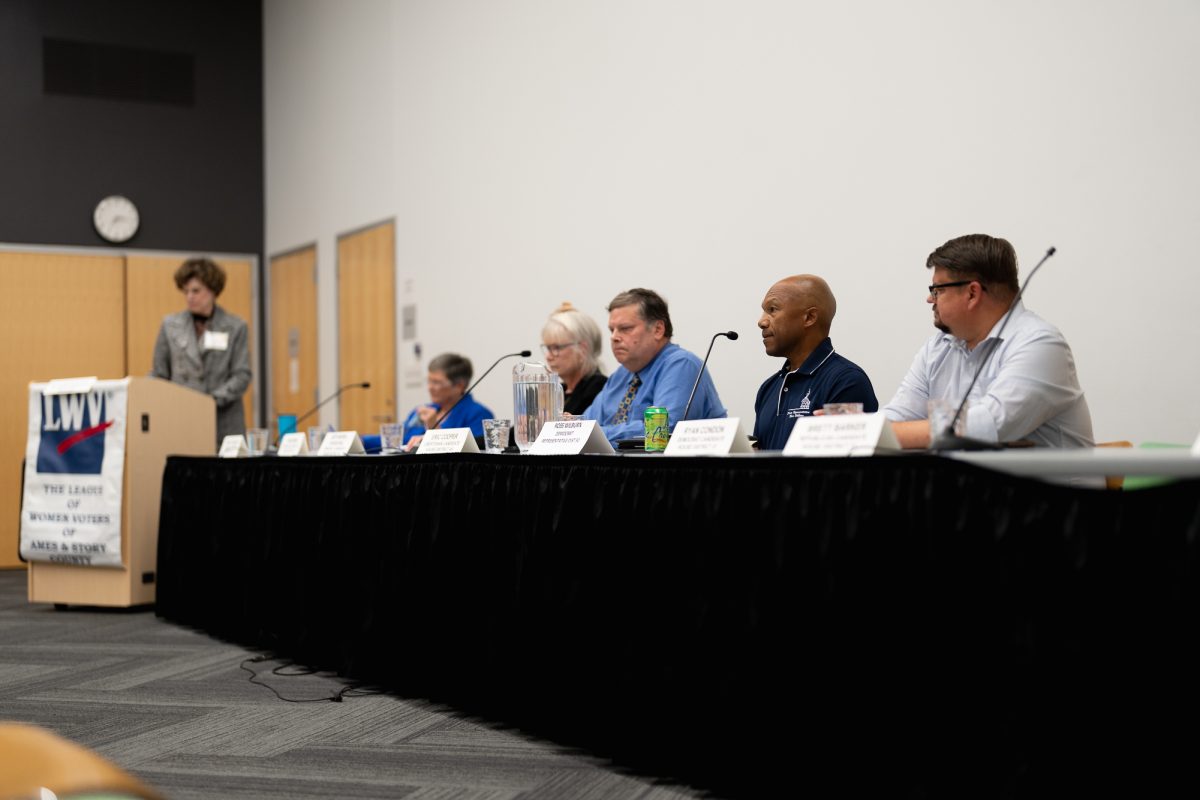Visit to Iraq shows effects of seven-year blockade on country
April 6, 1998
Mira Tanna told a group of 15 people in the Memorial Union how she risked a maximum of 12 years in prison and $125,000 in fines to witness the impact of sanctions on the people of Iraq.
Tanna, program associate for the American Friends Service Committee, shared her experiences with a slide presentation showing the trials of the Iraqis last Wednesday night.
The opportunity for Tanna to travel to Iraq in December 1997 came when she received a call from “Voices in the Wilderness,” a group that covertly sends people to Iraq as part of a campaign to lift the seven-year blockade, Tanna said. Traveling to Iraq is in violation of a U.S. travel ban and in violation of the sanctions.
The blockade includes an agreement that allows the Iraqi government to sell oil in order to receive food. This, however, does not alleviate the shortage of essential drugs and medical supplies. Often, Tanna said, Iraqi hospitals do not have common items such as aspirin and bandages in their medicine cupboards.
Tanna said her first impression of the country wasn’t something she imagined when preparing for the trip. “The first thing that I noticed, I wasn’t prepared for. My first thought was ‘This doesn’t look so bad for a country suffering a blockade,'” she said.
Her outlook soon changed though, once she visited six different hospitals in three cities — Baghdad, Basra and Amarah.
Her presentation focused on four different areas affecting the Iraqis’ daily lives. The group, which included Tanna and five other U.S. citizens, witnessed scarcity of food, strong emotional impact on the citizens of Iraq, disrepair of the infrastructure, and hyperinflation, she said.
Almost one million children in southern and central Iraq are chronically malnourished, and water and treatment facilities have not yet been repaired from the bombings. Middle-income doctors earn an equivalent of approximately $21 per year. All these, Tanna said, are the effects of the seven-year blockade.
These things did not seem to dampen the spirit of Iraqi hospitality, Tanna said.
“The warmth and generosity of the people were amazing to me. They said they loved the American people but had a problem with the government that was killing them.”
Tanna’s group took about $40,000 worth of medicine to give to Iraqi families and hospitals in need. Hospitals often did not have clean sheets, working electric lights or an adequate supply of nurses, she said.
“Often times, the mothers came in with their children to the hospitals to provide the nursing care,” Tanna said.
The blockade put on the Iraqi government by the United States and the United Nations also makes fresh fruits and vegetables very scarce. But, Tanna said, the Iraqi government is doing what it can to divide the portions fairly.
“Observers never witnessed a siphoning off of goods by the Iraqi government. The problem is not enough food for all the people,” Tanna said.
The Iraqi people don’t focus their conversations on Saddam Hussein, Tanna said.
“Their focus is on the sanctions because it is something that is affecting them now. The people there are completely dependent on their government, and for them to focus on longer term rights and democracy isn’t of concern to them now,” she said.
Tanna said the U.S. people should “lift our voice and say the military route should not be used to come to terms with Iraq.”
Groups and organizations need to challenge the sanctions, she said. “It is something we as U.S. voting citizens have a little power over. We don’t have any influence on Saddam Hussein.”
Tanna ended her presentation with a poem she wrote after she visited a civilian shelter hit by a bomb in 1991. The remains of the shelter posted pictures of almost all the people who had died in the shelter.
Tanna said individuals who want to help lift the sanctions should visit their U.S. Senators and Representatives, write letters to all government officials and collect family health kits.






